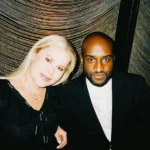In a world buzzing with constant activity and rapid decision-making, stepping back and observing can seem counterintuitive. Yet, “Learn to Sit Back and Observe. Not Everything Need – Tymoff” is a powerful reminder of the value of mindfulness and thoughtful reflection. Whether in non-public relationships, workplace dynamics, or lifestyles’s day-by-day challenges, not each scenario needs immediate action or intervention. Sometimes, knowing a state of affairs very well before responding can cause better results, greater peace, and an extra profound feeling of clarity.
This article explores the wisdom encapsulated in Learn to Sit Back and Observe. Not Everything Need – Tymoff and its relevance in today’s fast-paced world.
Why Observation Matters
Observation allows us to gather information and understand nuances that might be easily missed. It encourages endurance, which can result in better choice-making and deeper insights. Whether it is a communique, a place of business project, or a non-public dilemma, sitting lower back and gazing allows an extra measured reaction.
Examples from Everyday Situations
- Workplace Dynamics: In meetings, those who take time to observe often pick up on underlying tensions or unsaid concerns, giving them an advantage in problem-solving.
- Personal Relationships: Instead of reacting emotionally during a controversy, staring at the alternative person’s attitude can result in a healthier verbal exchange.
- Nature: Observing the sector around us—like watching a sunset or listening to birdsong—can foster mindfulness and reduce pressure.
What is the Phrase “Learn to Sit Back and Observe. Not Everything Need – Tymoff”?
“Learn to Sit Back and Observe. Not Everything Need – Tymoff” means taking a step back and paying attention before reacting. It reminds us that not every situation needs an immediate response. Observing first, we will better apprehend what’s happening, avoid errors, and make smarter decisions. It’s about staying calm, wondering clearly, and performing accurately.
Learn to Sit Back and Observe. Not Everything Need – Tymoff Philosophy
Tymoff’s insightful quote resonates deeply because it challenges the status quo. Here’s how embracing this mindset can transform various aspects of life.
Reducing Stress through Non-Reactivity
Stress often stems from the pressure to act immediately. By learning to sit back and observe, we can detach from the urgency and approach situations with a calmer mindset. For instance:
- In a heated debate, waiting before responding can prevent regrettable words.
- Observing priorities can help focus on what truly matters when facing an overwhelming task list.
Cultivating Emotional Intelligence
Observation strengthens emotional intelligence. Observing others’ emotions and behaviours makes us more empathetic and skilled at navigating complicated social interactions.
Fostering Personal Growth
Self-statement is a critical tool for personal development. Reflecting on our habits, reactions, and thought styles allows us to identify areas for improvement and cultivate a balanced attitude.
Practical Ways to Practice Sitting Back and Observing
Learning to observe requires intentional effort and consistent practice. Here are actionable steps to develop this skill:
Practice Mindfulness
Mindfulness is the art of being a gift inside the second. Simple mindfulness practices, like focusing on your breath or staring at your environment, can train your mind to pause and mirror.
Listen Actively
Active listening involves genuinely hearing what others say without planning your response. This fosters better understanding and reduces unnecessary conflict.
Journal Regularly
Writing about your thoughts and experiences can help you process situations and observe patterns in your behaviour.
Create Pauses in Conversations
Before offering an opinion, pause. This gives you time to consider your response and shows respect for the other person’s perspective.
Meditate
Meditation sharpens the ability to observe thoughts and emotions without reacting to them. Over time, this practice translates into more incredible observational skills in daily life.
Science Behind Observing Before Acting
Research in psychology and neuroscience helps the advantages of the statement. Studies show that pausing to look turns on the thoughts’ prefrontal cortex, which is responsible for selection-making and impulse manipulation. This system facilitates the override of the amygdala, the brain’s emotional centre, which frequently drives reactive behaviour. Additionally, observing earlier than acting enhances problem-solving capabilities and fosters creativity. We’re more likely to think outside the box and locate revolutionary solutions when we step again.
Cultural and Philosophical Perspectives on Observation
Across cultures and philosophies, the practice of observation is celebrated as a virtue:
Eastern Philosophies
Mindfulness and observation are foundational ideas in Buddhism. Vipassana meditation, for instance, emphasizes gazing at sensations and thoughts without attachment.
Stoicism
The Stoics accurately viewed life’s challenges. The Roman Emperor and Stoic philosopher Marcus Aurelius often wrote about repentance for inspiration.
Indigenous Wisdom
Many indigenous cultures emphasize listening to and observing nature to gain wisdom and maintain environmental harmony.
Common Misconceptions About Observation
Despite its benefits, sitting back and observing is often misunderstood. Here are some misconceptions and the truth behind them:
Misconception: Observing means doing nothing.
Truth: Observation is an active process of gathering information and reflecting before acting.
Misconception: Observing is a sign of weakness or indecisiveness.
Truth: Pausing and assessing a situation thoroughly takes strength and confidence.
Real-Life Benefits of Observing Before Acting
The practical benefits of observation extend across personal and professional domains:
Improved Relationships: Observing rather than reacting allows us to navigate conflicts more effectively and build stronger connections.
Enhanced Decision-Making: Decisions made after careful observation are often more informed and effective.
Greater Resilience: Observing challenges from a distance allows us to adapt and respond constructively, fostering resilience.
Learn to Sit Back and Observe. Not Everything Need – Tymoff in Practice
Embracing Tymoff’s philosophy requires commitment but offers immense rewards. Start small by incorporating observation into your daily routine. For instance:
- Spend five minutes each day observing your thoughts without judgment.
- Practice pausing before responding in conversations.
- Reflect on your actions and decisions at the end of each day.
FAQs
How can I start observing more in daily life?
Begin with simple practices like mindfulness, active listening, and journaling. Pause before reacting and regularly reflect on situations.
How does observation enhance relationships?
Observing others’ emotions and perspectives, we can communicate more effectively and constructively resolve conflicts.
What is the science behind observation?
Observation engages the prefrontal cortex, enhancing decision-making and impulse control while fostering creativity.
Conclusion
To “Learn to Sit Back and Observe. Not Everything Need – Tymoff ” is to embrace the power of patience, mindfulness, and thoughtful reflection. By prioritising remarks, we domesticate a greater profound understanding, more potent relationships, and an extra feeling of peace. In an international push using consistent activity, the awareness of sitting back and observing offers a transformative path to a more balanced and gratifying existence.
To get updates and learn more, visit our blog, baddieshub.uk.

Hi there! I’m Fran Candelera, an author at https://baddieshub.uk/ with over 30 years of experience. I am an artist and love playing with words and covering news, and I am Skilled in Academic Advising and Curriculum development. Join me on this writing journey, where I bring words to life in various exciting ways!






Leave a Reply